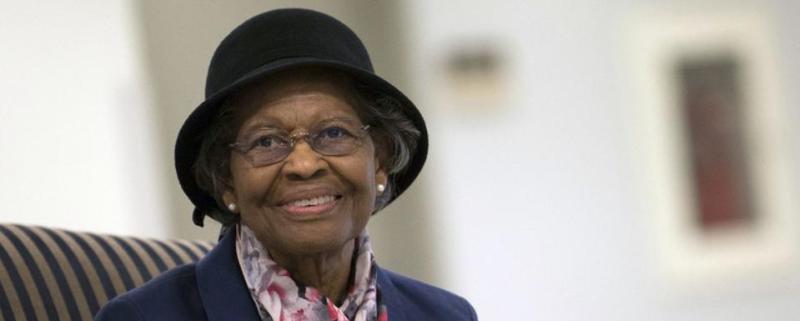 From maps to apps to chartplotters, we all rely on GPS these days, sometimes whether we realize it or not. Ethan Siegel recently wrote in Forbes: Unbeknownst to most people, however, the science underlying this technology was primarily developed by two people: Albert Einstein, whose theories of special and general relativity both play an important role, and Gladys West, a still-living and largely unheralded Black woman whose scientific contributions enabled us to understand geodesy and the shape of the Earth well enough to make GPS technology possible.
From maps to apps to chartplotters, we all rely on GPS these days, sometimes whether we realize it or not. Ethan Siegel recently wrote in Forbes: Unbeknownst to most people, however, the science underlying this technology was primarily developed by two people: Albert Einstein, whose theories of special and general relativity both play an important role, and Gladys West, a still-living and largely unheralded Black woman whose scientific contributions enabled us to understand geodesy and the shape of the Earth well enough to make GPS technology possible.
Now, we all know who Albert Einstien was. Gladys West, perhaps not so much. In honor of Black History Month, here is an updated repost about the Black female mathematician whose work for the Navy made a major contribution to the development of the Global Positioning System.
Gladys West was born in Dinwiddie County, VA, the daughter of a small farm owner. Not wanting to spend her life working in the fields or in the local tobacco processing factory, she decided that an education was her only way out. She graduated first in her high school class and earned a scholarship to college, where she studied mathematics.
After graduating, she taught for a few years before landing a job in 1956 at the Naval Surface Warfare Center in Dalghren, VA. She was the second black woman and one of only four black employees working at the facility. One of the others was a mathematician named Ira West. The two dated for 18 months before they married in 1957.
While Ira spent most of his career developing computer programs for ballistic missiles launched from submarines, Gladys’ calculations focussed on satellites. She collected data from the satellites, focusing on information that helped to determine their exact location as they transmitted from around the world. The data was laboriously analyzed using large-scale computers that filled entire rooms. Gladys also wrote computer software that processed geoid heights, or precise surface elevations.
West’s work on the modern day GPS system during her 42-year career at the Navy base in Dahlgren was essential to the development of the Global Positioning System in the 1950s and 1960s.
“When you’re working every day, you’re not thinking, ‘What impact is this going to have on the world?’ You’re thinking, ‘I’ve got to get this right.’”
In a message about Black History Month, written in 2017. Capt Godfrey Weekes, then-commanding officer at Dahlgren, said Mrs. West played an “integral role” in the development of GPS.
“As Gladys West started her career as a mathematician at Dahlgren in 1956, she likely had no idea that her work would impact the world for decades to come.”
“I think I did help,” she says, of her becoming a role model for other women.
“We have made a lot of progress since when I came in, because now at least you can talk about things and be open a little more.
“Before you sort of whispered and looked at each other, or something, but now the world is opening up a little bit and making it easier for women.
“But they still gotta fight.”
After retirement, Gladys West went on to earn a PhD, despite various health issues including a stroke and breast cancer.
Gladys, now 86, and her husband Ira, live in King George County, Virginia and have been married for more than 60 years.
In 2018, Dr. Gladys West was inducted into the Air Force Space and Missile Pioneers Hall of Fame during a ceremony at the Pentagon. The Pioneers Hall of Fame is one of Air Force’s Space Commands Highest Honors.

I was involved in the assesment of GPS in the oil indutry in Europe in the 1980s with priveleged access to “p” codes, Gladys West is now one of my undisputed heroines.